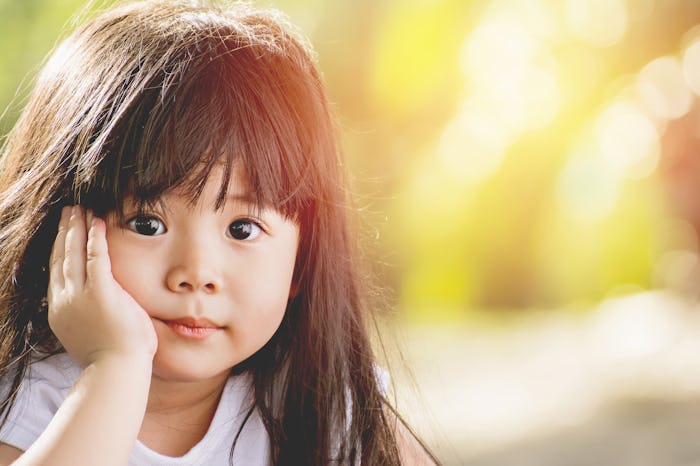Life

5 Personality Traits Your Toddler Will Have for Life, According to Science
When you're looking at your toddler busily overturning their bowl of Cheerios, babbling at their favorite stuffed animal, or sleeping peacefully in their crib, it's hard to imagine that that sweet little cherub will one day be driving a car... or growing taller than you... or presenting you with a grandchild. But while a lot happens in a child's first couple of decades, some things never change. For instance, psychologists have discovered that a child's personality doesn't really change between the early years and adulthood.
Of course, kids don't go through life scribbling on the walls and picking their noses (at least, we hope they don't), but two studies from Kings College, London, and the University of California, Riverside, both looked at specific personality traits exhibited by young children and compared them to the temperaments the children had when they grew up. In both cases, there was remarkably little change; shy children didn't become outgoing, and vice versa. Another study, from the University of Iowa, found that 1-month-old babies who were fussy were more likely to have anxiety problems and hyperactivity as tweens. "We think that personality resides within us," said California study co-author Christopher Nave in the journal Social Psychological and Personality Science. "It's part of our biology."
These are the traits the researchers found are most likely to carry over from the early years into adulthood:
1Talkativeness
According to the California study, which also involved researchers from the University of Oregon, adults who were overly chatty as children were more likely to continue speaking well and to be interested in intellectual matters. They also tended to be somewhat bossy. On the other end of the scale, children with low verbal fluency grew up to be socially awkward adults who were quick to give up when the going got tough.
2A Go-With-the-Flow Attitude
Children who were evaluated as most adaptable to new situations grew up to be cheerful and verbal in midlife, the California researchers found. Kids who found it difficult to adapt tended to use more negative self-talk and ask for help more often as adults.
3Impulsiveness
The British researchers, working with psychologists from the University of Wisconsin, Madison, found that the 3-year-olds categorized as most impulsive became young adults who were prone to tension and anxiety. The California/Oregon study affirmed that less impulsive children became more likely to be fearful and insecure when they grew up.
4Humility
The California/Oregon researchers noted that young children who tended to be "self-minimizing," or humble and not show-offy, continued to be that way over the years. As adults, they were also more self-deprecating and felt guiltier than men and women who were less humble as kids.
5Confidence
Both studies found that children who were naturally confident and outgoing held on to those traits as grownups. What's more, a long-term study from Scotland found that kids with high self-confidence and self-esteem were healthier as adults than children with low self-esteem. The researchers theorize that people who have a positive self-image are more motivated to want to maintain healthy habits such as exercise and good diet.
But before you worry that your timid toddler will grow up to be a fearful social outcast, don't forget that children are products of their upbringing as well as their genes. Countless studies, including a recent one from Brazil, affirm that children raised with respect, emotional support, and clear limits are more likely to develop positive social skills.
There are also ways to help a child modify their behavior, even though their basic personalities may not change. An impulsive child can be taught to think before they act, and modeling positive self-talk ("I know I can do this if I try") can help boost a child's flagging confidence.
Bottom line: No matter what kind of innate personality your child has, they still need and thrive on your love, support, and guidance.